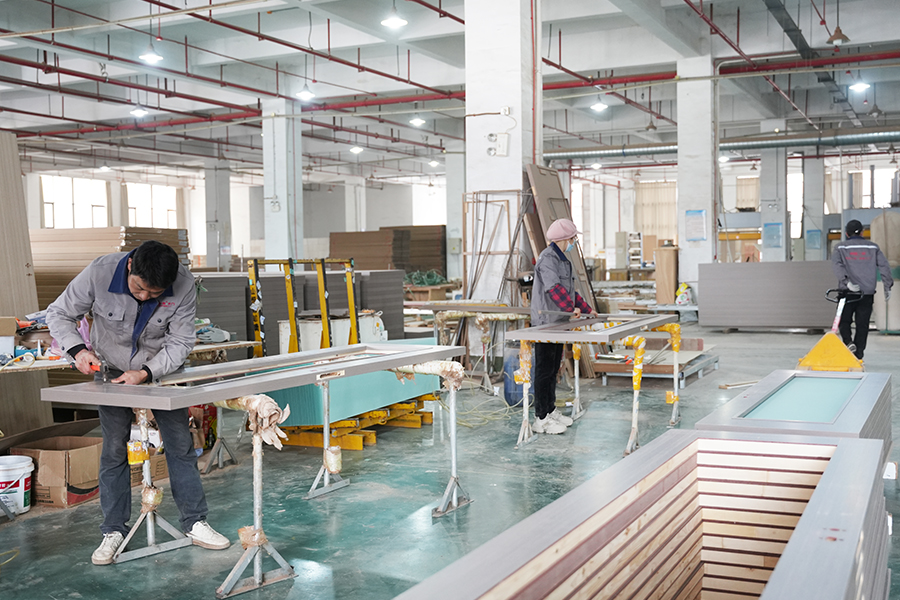2025-05-23
When considering an upgrade or new installation of doors inside a home or commercial space, choosing the right interior door manufacturer is a significant decision. While both mass-produced and custom interior door manufacturers supply functional and aesthetic products, their approaches, capabilities, and customer focus often differ.
One of the main differences lies in product variety and flexibility. A mass-produced interior door manufacturer typically focuses on standard sizes, finishes, and materials. Their production lines are designed for efficiency, enabling them to supply large quantities of doors at a consistent pace. This makes them suitable for projects that require uniformity, such as large apartment buildings or commercial complexes.
On the other hand, a custom interior door manufacturer is more adaptable to individual preferences and design requirements. These manufacturers often offer more choices in materials, finishes, panel configurations, and hardware. They work closely with clients, architects, or designers to meet specific aesthetic or functional needs. This approach is particularly useful for homeowners who want their interior doors to match existing furniture, unique architectural elements, or personal tastes.
Another distinction is found in production time and lead duration. A mass-produced interior door manufacturer usually maintains inventory or has short turnaround times due to the volume-oriented nature of their operations. In contrast, a custom interior door manufacturer might require more time to complete an order, as each door is made to unique specifications and often involves manual craftsmanship or tailored processing.
Quality control and craftsmanship also vary. While both types of manufacturers implement quality checks, a custom interior door manufacturer is more likely to use artisanal methods and high-grade materials. This doesn’t imply a lack of quality in mass production, but rather highlights that custom production tends to focus more on individual detail, especially in terms of finishing and fitting.

Additionally, customer service and consultation differ significantly between the two types. A custom interior door manufacturer generally engages more in direct communication, offering design consultations, on-site measurements, and more responsive after-sales support. Mass producers, by contrast, usually rely on standardized customer support systems, with limited customization guidance.
In terms of cost, mass-produced doors tend to be more budget-friendly due to economies of scale. For clients working on tight timelines or large-scale projects with fixed budgets, a mass-producing interior door manufacturer may be the practical option. Custom interior door manufacturers, although often more expensive, provide value in the form of tailored designs, material selection, and personalized service.
Sustainability practices can also vary. Some custom interior door manufacturers may offer eco-conscious material choices or low-VOC finishes upon request, depending on client priorities. Mass producers may follow broader compliance standards but have less room to accommodate special material preferences.
In conclusion, the choice between a mass-produced and a custom interior door manufacturer depends largely on the specific needs of the project. For volume, consistency, and quicker delivery, mass production is effective. For personalized design, material selection, and detailed craftsmanship, working with a custom interior door manufacturer provides more flexibility and design freedom. Understanding these key differences allows buyers to select a manufacturer aligned with their vision, timeline, and budget.
